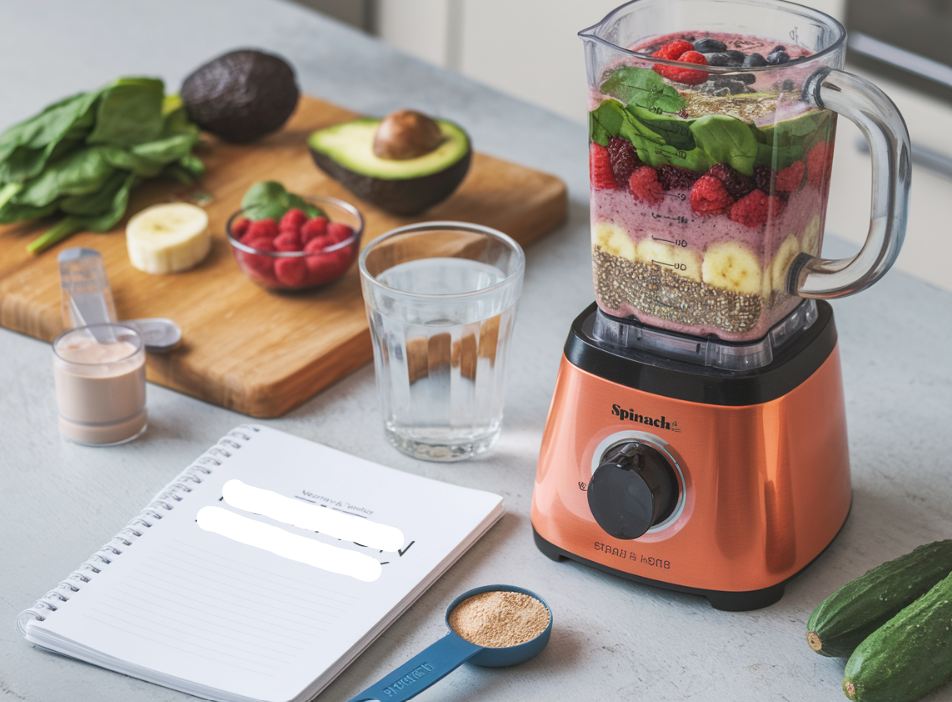Smoothies have become a staple for health enthusiasts and busy individuals alike, offering a quick, delicious way to pack nutrients into one glass. But is it really OK to drink homemade smoothies every day? This article explores the benefits, risks, and best practices for making smoothies a part of your daily routine.
Benefits of Drinking Homemade Smoothies Daily
Drinking smoothies daily can provide a host of benefits when done thoughtfully. Here’s why:
Boosts Nutrient Intake
Homemade smoothies are an excellent way to consume a wide range of vitamins and minerals in one serving. By blending fruits, vegetables, and other nutrient-dense ingredients, you can meet your daily intake for essential nutrients. For a detailed guide on balancing nutrient-dense meals, check out What Foods Have 5 Ingredients or Less.
Supports Digestive Health
Smoothies made with high-fiber ingredients like spinach, kale, or chia seeds can promote a healthy gut. Fiber aids digestion and helps maintain regular bowel movements, making smoothies a convenient way to boost your fiber intake.
Improves Hydration
Adding water, coconut water, or milk to your smoothie contributes to your daily hydration. Staying hydrated benefits not only digestion but also skin health and energy levels. Curious about hydrating meal options? Explore Summer One-Pot Meals Vegetarian for complementary ideas.
Customizable for Individual Needs
One of the greatest benefits of homemade smoothies is the ability to tailor them to your dietary needs. Whether you’re aiming for weight loss, muscle gain, or general wellness, you can adjust ingredients accordingly.
Potential Risks of Drinking Smoothies Every Day
While smoothies can be incredibly healthy, there are some potential downsides to consider:
Overconsumption of Sugar
- Adding too many fruits or sweeteners can increase the sugar content, leading to blood sugar spikes.
- Avoid adding refined sugars or juices; instead, rely on natural sweetness from fruits like bananas or berries.
Caloric Overload
- Even healthy smoothies can be calorie-dense if you use high-fat or high-calorie ingredients like nut butter and sweetened yogurts.
- To keep your smoothie balanced, monitor portion sizes and avoid overloading on extras.
Limited Food Variety
- Drinking smoothies every day may lead to over-reliance on blended foods, potentially limiting the texture and variety in your diet.
- Incorporate whole foods and meals alongside smoothies to ensure nutritional diversity.
Dental Health Concerns
- Frequent exposure to fruit acids and sugars can erode enamel if oral hygiene isn’t prioritized.
- Use a straw and rinse your mouth after consuming smoothies to reduce the risk of dental damage.
Tips for Making Balanced Daily Smoothies
To ensure that your daily smoothie habit is as healthy as possible, follow these tips:
1. Choose Low-Sugar Ingredients
- Use fruits like berries, avocado, or green apples for lower sugar content.
- Avoid fruit juices and syrups, which can add unnecessary sugars.
2. Add Protein for Satiety
- Incorporate ingredients like Greek yogurt, silken tofu, or protein powders to keep you fuller longer.
3. Include Healthy Fats
- Ingredients like avocado, flaxseeds, or almond butter not only add creaminess but also boost your intake of omega-3 fatty acids.
4. Don’t Forget Vegetables
- Add nutrient-packed veggies like spinach, kale, zucchini, or even cauliflower for added fiber and micronutrients.
5. Keep Portions Controlled
- Limit your smoothie size to 8–12 ounces to avoid excessive calorie intake.
Example Smoothie Recipes for Everyday Use
Here are three balanced smoothie recipes to inspire your daily routine:
1. Green Protein Smoothie
- Ingredients: Spinach, avocado, unsweetened almond milk, protein powder, chia seeds.
- Benefits: High in fiber, protein, and healthy fats.
2. Antioxidant Berry Smoothie
- Ingredients: Mixed berries, Greek yogurt, flaxseeds, coconut water.
- Benefits: Packed with antioxidants and supports hydration.
3. Low-Sugar Tropical Smoothie
- Ingredients: Pineapple, cucumber, unsweetened coconut water, and a splash of lime juice.
- Benefits: Refreshing and hydrating with a tangy twist.
For more creative ways to incorporate nutritious ingredients, visit How to Feed My Family on $10 a Day.
FAQs: Addressing Common Concerns
Is drinking a smoothie every day healthy?
Yes, as long as they are balanced and not overly reliant on high-sugar or processed ingredients.
Can smoothies replace meals?
Smoothies can replace meals if they include a mix of protein, healthy fats, and fiber for satiety and balanced nutrition.
How much smoothie is too much?
Stick to 8–12 ounces per serving to prevent overconsumption of calories or sugars.
Are store-bought smoothies healthy?
Most store-bought smoothies contain added sugars and preservatives. Homemade options allow you to control the ingredients and maintain nutritional integrity.
What are the healthiest ingredients to include?
- Low-sugar fruits like berries
- Leafy greens such as spinach or kale
- Protein sources like Greek yogurt or tofu
- Healthy fats like avocado or chia seeds
Conclusion: Is It OK to Drink Smoothies Every Day?
Drinking homemade smoothies every day can be a healthy habit when approached mindfully. By choosing balanced ingredients, avoiding added sugars, and practicing portion control, you can enjoy the many benefits of smoothies while minimizing potential downsides. Remember to pair your smoothies with whole foods for a varied and textured diet.
Looking for more affordable, nutritious meal ideas? Don’t miss What Is the Cheapest Meal You Can Make. Smoothies can complement a well-rounded approach to health and wellness, so blend up and enjoy!

